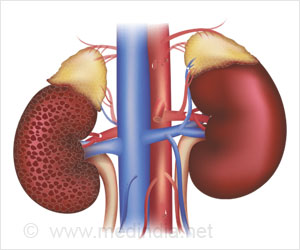People with a severe form of arterial disease appear to have low levels of vitamin C in their blood, regardless of their diet or smoking habits.
People with a severe form of arterial disease appear to have low levels of vitamin C in their blood, regardless of their diet or smoking habits. Peripheral artery disease (PAD) is a form of atherosclerosis, a condition in which fatty build-up accumulates inside the arteries and obstructs blood flow. In PAD, blood flow in the legs and feet is impaired, which can cause lameness and pain. PAD is also associated with an increased risk of death and disability caused by heart attack and stroke.
PAD may cause inflammation and the release of free radicals--compounds that can damage tissue and may contribute to aging and chronic conditions such as cancer and heart disease. While antioxidants such as vitamin C can "neutralize" these compounds and reduce damage, free radicals can also deplete antioxidants from the body when overall levels are low.The investigators found that patients with PAD had vitamin C blood levels nearly twice as low as those in people without PAD.











